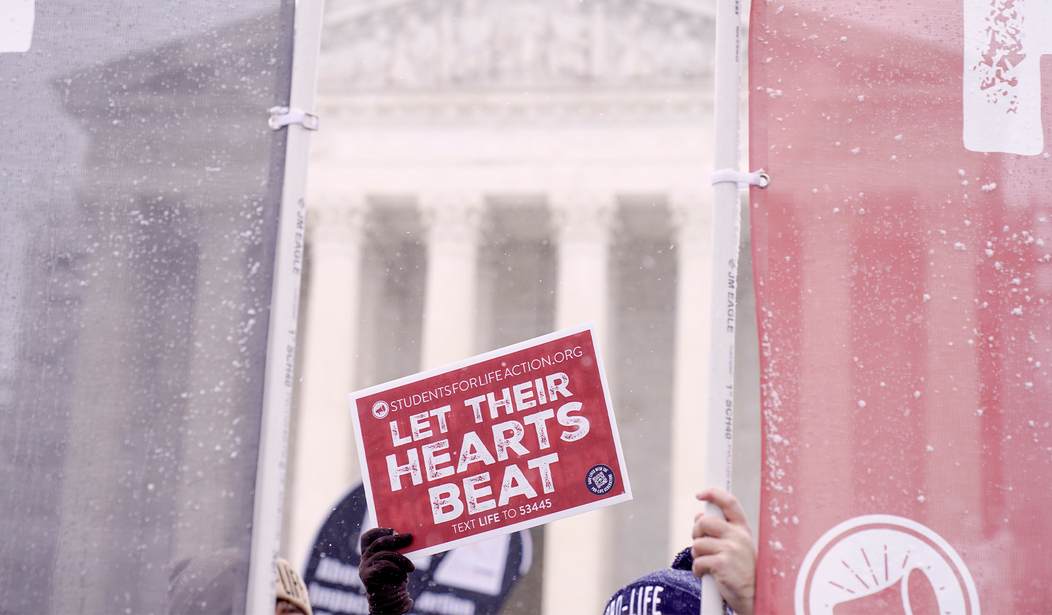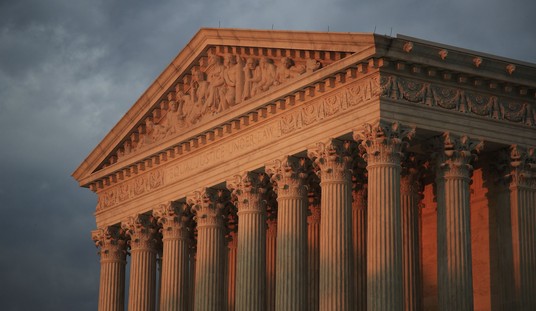When the Founders wrote the Constitution, they unambiguously gave Congress control over federal spending. But Planned Parenthood is now suing the federal government in denial of this fact -- claiming the Constitution requires the federal government to give money to organizations that are abortion providers.
Article 1, Section 9, Clause 7 of the Constitution plainly states: "No money shall be drawn from the Treasury, but in Consequence of Appropriations made by Law."
To constitutionally enact such an appropriation, both houses of Congress must pass it by a majority vote and get it signed by the president. If the president vetoes the bill -- as he is empowered to do under Article 1, Section 7, Clause 2 of the Constitution -- both houses must approve it by a two-thirds vote for it to become law.
On July 1, the Senate voted 51-50 to pass the One Big Beautiful Bill Act. On July 3, the House passed it 218-214. On July 4, President Donald Trump signed it into law.
On July 7, the Planned Parenthood Federation of America, the Planned Parenthood League of Massachusetts and the Planned Parenthood Association of Utah sued Health and Human Services Secretary Robert F. Kennedy Jr. and Centers for Medicare and Medicaid Services Administrator Mehmet Oz, claiming that a provision in this law was unconstitutional. These plaintiffs asked the U.S. District Court for the District of Massachusetts, where the case was filed, to grant a temporary restraining order stopping the law's enforcement against them while their case proceeded. Judge Indira Talwani complied, issuing a 14-day restraining order.
Specifically, Planned Parenthood is challenging Section 71113 of the One Big Beautiful Bill Act, which stops federal Medicaid funding for "prohibited entities" for one year. The law defines these "prohibited entities" as "an entity, including its affiliates, subsidiaries, successors and clinics" that is a nonprofit, and is "primarily engaged in family planning services, reproductive health, and related medical care; and provides for abortions" other than in cases of rape, incest or when the life of the mother is endangered.
Recommended
The abortion-providing "prohibited entities" that would be denied federal funding under this provision must also have received more than $800,000 in Medicaid funding in fiscal 2023.
Under its appropriation power, Congress is simply declining to provide federal funding to these abortion providers.
In their suit, filed in the U.S. District Court for Massachusetts, the Planned Parenthood organizations argued that they were acting "to vindicate rights secured by the Constitution's Bill of Attainder Clause and by the First and Fifth Amendments to the United States Constitution."
Article 1, Section 9, Clause 3 of the Constitution states, "No Bill of Attainder or ex post facto Law shall be passed." The Congress.gov website notes that, "A bill of attainder is legislation that imposes punishment on a specific person or group of people without a judicial trial." Section 71113 of the One Big Beautiful Bill Act does not impose "punishment ... without a judicial trial." It deals with appropriations -- an indisputable power of Congress -- and declines to provide federal Medicaid funding to abortion providers.
"The object is apparent upon the slightest examination," Justice Joseph Story wrote of the Appropriations Clause in his Commentaries on the Constitution published in 1833. "It is to secure regularity, punctuality, and fidelity, in the disbursements of the public money. As all the taxes raised from the people, as well as the revenues arising from other sources, are to be applied to the discharge of the expenses, and debts, and other engagements of the government, it is highly proper, that congress should possess the power to decide, how and when any money should be applied for these purposes."
The current Congress decided -- in a constitutionally enacted law signed by the president -- that federal Medicaid funds should not go to major abortion providers.
The Planned Parenthood lawsuit also argues that what it calls the "Defund Provision" in the One Big Beautiful Bill Act violates its rights under the First Amendment and Fifth Amendment.
"The Defund Provision," says their lawsuit, "violates the equal protection component of the Due Process Clause of the Fifth Amendment by irrationally singling out Planned Parenthood for unfavorable treatment." The Fifth Amendment Due Process Clause says: "No person shall be ... deprived of life, liberty, or property, without due process of law." In the One Big Beautiful Bill Act, Congress did not deprive abortion providers "of life, liberty, or property," it deprived them of taxpayer-funded subsidies -- through a constitutionally enacted law.
"PPFA and its Members engage in First Amendment protected activity," says the Planned Parenthood lawsuit. "They do so by advocating for access to sexual and reproductive health care, including the right to safe and legal abortion. Members associate with PPFA and one another to speak and act collectively where appropriate, and in furtherance of their common goals, exercising the associative right 'implicit in the right to engage in activities protected by the First Amendment.'"
"The statute," says Planned Parenthood's lawsuit, "plainly defunds Planned Parenthood Members because of their participation in the nation's most high-profile membership association of abortion providers, known for its advocacy for abortion rights and access across the country."
The statute, however, does not prohibit abortion providers from associating with each other or speaking out in favor of terminating the lives of innocent unborn children. It simply stops giving them federal funding.
Planned Parenthood's latest annual report indicated that in fiscal year 2023 its affiliates performed 402,230 abortion procedures. That, as noted by the Family Research Council, equals an average of 1,102 innocent unborn babies terminated per day.
The Constitution does not compel Congress to fund abortion providers. Congress did the right thing in voting not to fund them.
























Join the conversation as a VIP Member